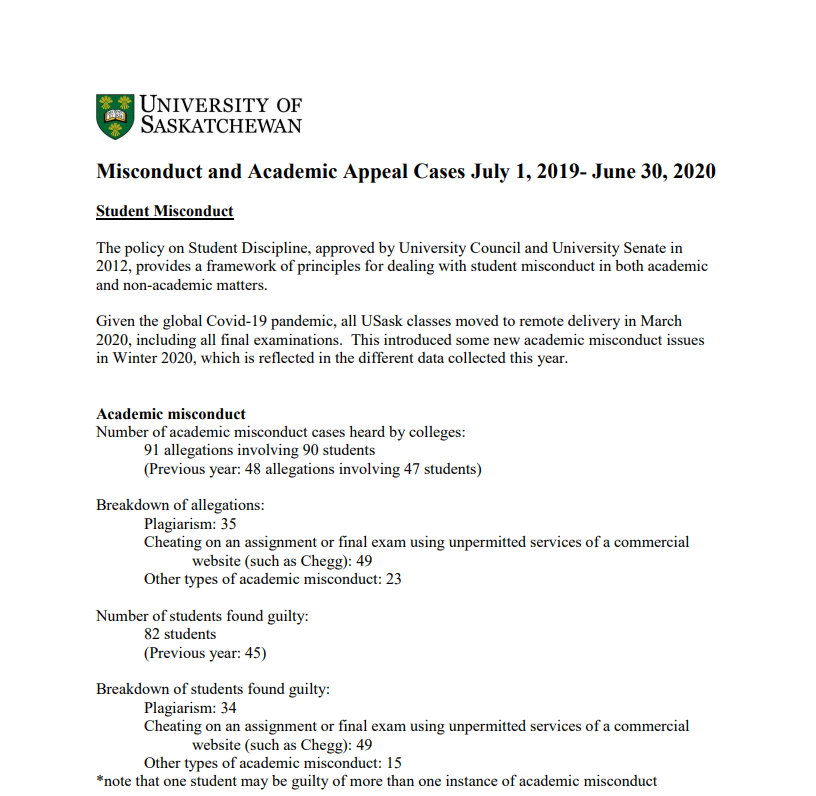The COVID-19 pandemic has altered the way people go about their everyday life.

That is true for faculty and students at the University of Saskatchewan (USask), as nearly all classes were moved to virtual learning.
USask teaching and learning enhancement director Nancy Turner says while the official numbers will not get released until before the fall, they have noticed an uptick in reports of cheating during the fall semester.
“Academic integrity has been more of a challenge in these remote context,” Turner said. “We have had to transition to teaching and learning and assessing in ways that are very different.
“Anecdotally we are seeing more instances (of cheating), I can’t tell you exactly how many more at this time.”
Turner says between the period of July 2019 and June 2020 there were 91 allegations of cheating involving 90 students. Eighty-two were later found guilty. This year’s academic honest report will be released sometime before the fall.
Turner adds there could be a number of factors as to why a student may take the option of cheating, with less of a watchdog on them while they do their schooling online.
“Thinking that they don’t have much of a chance of succeeding in an exam,” Turner said. “Thinking others are cheating and they need to keep up, or they place a low value on the learning that is happening. ”
USask associate dean academic Western College of Medicine professor Chris Clark, says many teachers have the spring and summer to construct a game plan as to how they were going to tackle this school year.
He says there have been no reports of any academic misconduct in his field, to this point of the school year.
“We (professors) had a lot of conversations and discussions and came up with best practices,” Clark said. “I think for the most part of working quite well.”
Clark adds with the help of technology, his faculty have changed the way testing is done to eliminate collocation with other students and their ability to use their textbook, the internet to aid with the answer for a question.
“Pre COVID-19, a portion of the questions on exams were old school (remember and recoil information). We have moved to exam questions that force students that have to know their know material and apply it to questions.”

Clark says his College has been granted permission to do some hands-on training with students.
“Essential labs in person with a lot of controls in place,” said Clark. “Students do labs on campus that are absolutely vital with respect to learning medical procedures learning surgical procedures. You just can’t do that remotely.”
He adds at the end of the day having the understand and giving expectations to students from the get-go, is also important.
Associate dean academic in the college of agriculture and bioresources Fran Walley says adaption to teaching methods and using an alternative way to test students is the end game.
“What we have to know is how well the student has taken the information and have they made sense of it?” said Walley.
She says a more individualized response is how she is what her teaching is geared towards with her students.
“I know there has been some professors have gone to oral exams.” They can very quickly come to an understanding of where the student is,” Walley said. “In the end these styles of teaching simply take more time.”
Walley says she hasn’t had any reports of cheating to this point in the year.
Both professors say they will be incorporating these learning/teaching methods for future classes.
Turner says each student found guilty of cheating will face necessary consequences deemed from the severity of the academic violation.
“We take cheating very seriously,” said Turner. “We are very diligent about it. We know the large majority of students don’t come to the university to cheat.”
She says their are options available at the school to help students to ensure academic integrity on USask.ca.





Comments